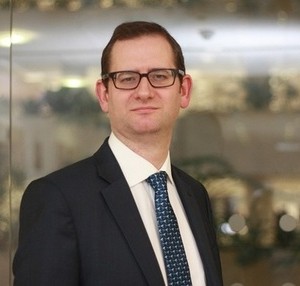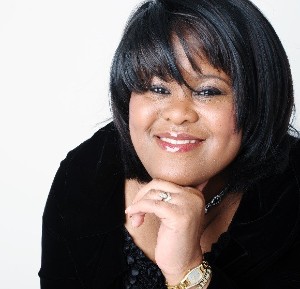Thu 11 Nov 2021

Professionals and trainers in the diversity and inclusion space hope that 2022 will be the year of bold actions towards achieving race equality in the workplace
By Murielle Gonzalez
The percentage of staff from ethnic minority groups in the whole civil service is increasing. According to government data, as of 31 March last year, 13.2% of civil servants declared their ethnicity as Black, Asian, or other minority ethnic group (BAME). This percentage increased from 4% in 1988, and it's also slightly higher than the entire BAME workforce in the UK of 12.76%. So, the need for racial inclusion at work is rising, too.
The numbers are encouraging because it shows that the public sector attracts talent from a pool of people of diverse backgrounds. Their perspectives and contributions are needed to create policies and public services that represent our society and serve it better.
Moreover, the increasing number of BAME staff suggests that commitments enshrined in the 2017 Civil Service Diversity and Inclusion Strategy are moving the dial. However, BAME colleagues and race champions in government agree that more needs to be done to make the civil service a truly diverse workplace.

Take the words of Paul Kett (pictured), Director General for Higher Education and Further Education, speaking at last year's BAME into Leadership conference: "When I became the race champion of the Department for Education, I made a commitment that was two-fold — I would truly listen and would make sure whatever we did was sustainable and embedded in the organisation."
His statement reflects on the fact that much of the work done towards diversity and inclusion builds on bold commitments. But most importantly, it shows that racial inclusion requires allies to take on the challenge.
Indeed, over the years, we've seen many reports, reviews, and research into the challenges of race equality at work. There is the MacGregor-Smith report of 2017, the national survey conducted by Business in the Community for its Race to Work report, the report of the Commission on Race and Ethnic Disparities, and Navigating the Labyrinth, the report of the Social Mobility Commission. In all, you'll find evidence of the issues and challenges BAME colleagues experience at work, as well as the sentiment of mistrust and mistreatment, particularly when it comes to opportunities for career progression. There's also evidence of intersectionality — discrimination and inequalities on race, gender, and disabilities, for example.
But the discourse is changing. Professionals and trainers in the diversity and inclusion space hope that 2022 will be the year of bold actions. There's a sense of urgency, too. We need to embark upon a journey that requires everyone in the organisation to play their part.
Momentum is building up to see allyship in the spotlight. BAME colleagues have been at the centre of the discussion for obvious reasons, but creating greater support and mentorship is an opportunity that we can't afford to miss.
Stephen Parkinson (pictured), a senior partner at law firm Kingsley Napley, will be speaking at Race to Equality: Achieving Racial Inclusion at Work on 9 December. He will discuss what it takes to become an active anti-racist ally and what can you do to seize the opportunity to explore your role in enacting change. Parkinson will also provide you with tips for enabling constructive and open conversations about race equality. Register to attend.
Race equality — an evolving journey
Racial inclusion is among the first protected characteristics that businesses and public sector organisations embark upon for their diversity and inclusion journey. However, soon enough, they realise that the ambition of delivering greater racial inclusion is complex and emotionally sensitive. So what can you do about it?
According to African American novelist James Baldwin, not everything that is faced can be changed, but nothing can be changed until it is faced. So, if you're serious about realising racial inclusion at work, now is the time to gather data, raise awareness and examine the processes and the culture of your organisation to determine whether issues such as harassment, bullying or any other means of discrimination occur, and build a strategy around that.
Indeed, gathering data, taking accountability, and examining recruitment are among the six recommendations of the Race At Work 2021: The Scorecard Report by Business in the Community. Commenting on the findings, Sandra Kerr CBE, Race Equality Director at the charity, said that the volume of employers voluntarily capturing their ethnicity pay gap data has shifted from 11% to 19% last year. She also highlighted progress has been made since the 2020 report, with a 44% increase in the number of senior leaders promoting equality.
Admittedly, over the past two decades, there's been a realisation that racial equality is no longer about what we could do but what should we do — and this has been reflected in the evolving legislation. It all started with the Equality Act 2010 that protects specific characteristics, but we'll soon see the legal obligation for ethnicity pay gap reporting in a similar fashion as businesses report on the gender pay gap.

Speaking at Race to Equality: Achieving Racial Inclusion at Work, Kerr (pictured) will outline the path from policy to workplace practice. She will talk about ensuring that company policies and processes provide for ethnic minority staff and will examine legislation around race discrimination. Kerr will also comment on best practices for creating procedures for cases of harassment or grievance and will explain how organisations can cultivate a culture and ethos of compassion and trust. Register to attend.
Join us on 9 December for Race to Equality: Achieving Racial Inclusion at Work, and you will experience why this conference series is a one-of-a-kind event in the diversity and inclusion space. It offers an immersive day of CPD-certified training and a platform for honest discussions about where to start and how to approach the conversation about supporting BAME colleagues at work.
Other sessions you don't want to miss:
- Cultural Intelligence workshop: Working confidently in different cultures
- 'Good Diversity' workshop: Achieving best practice in the recruitment and development of ethnic minority staff
- Ethnicity pay gap reporting
Visit the event page, and book your place.
ABOUT THE AUTHOR
Murielle Gonzalez, content strategy manager at Dods Diversity & Inclusion, is an experienced journalist and editor. She can be reached on murielle.gonzalez@dodsgroup.com.
View all news